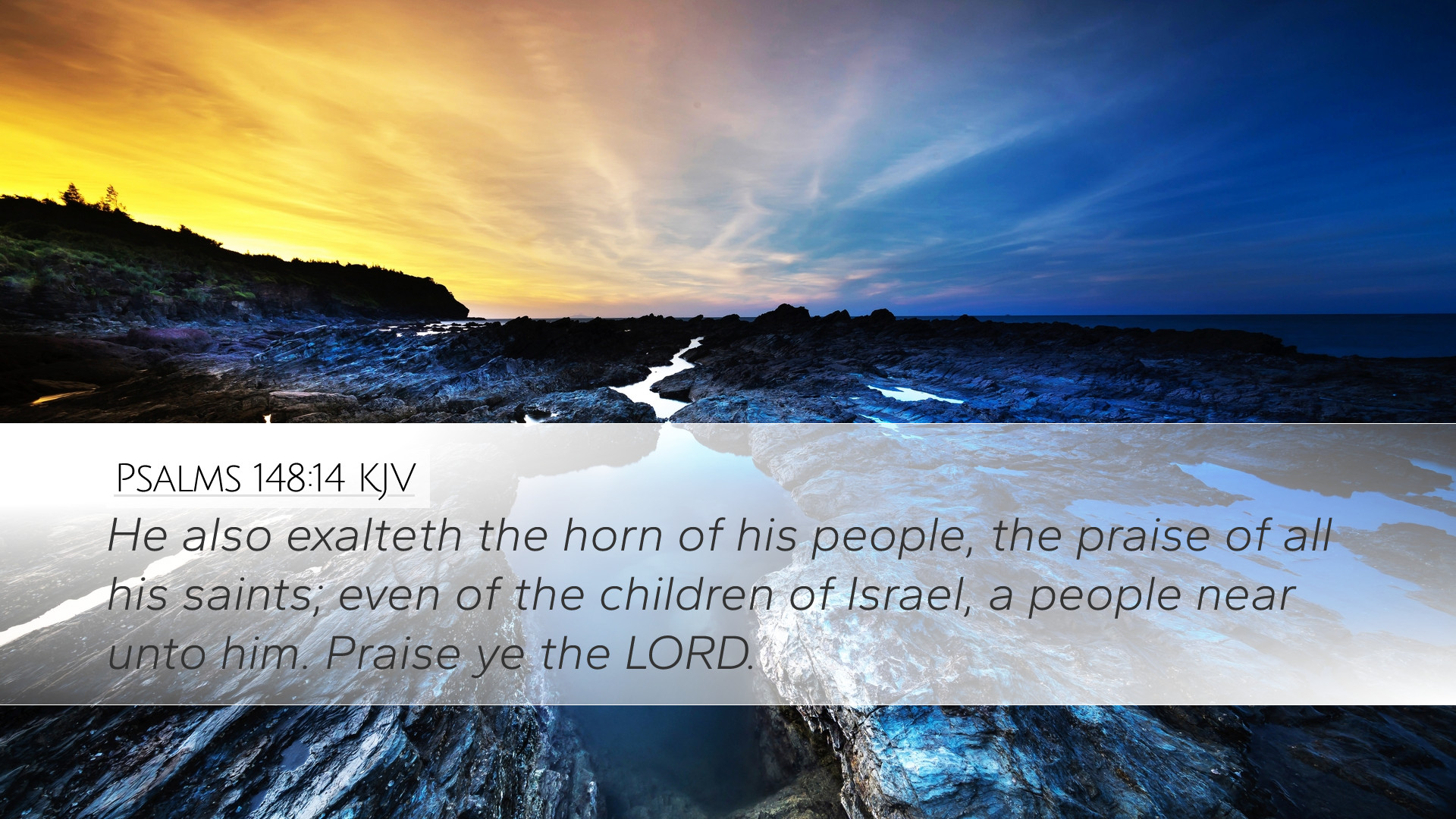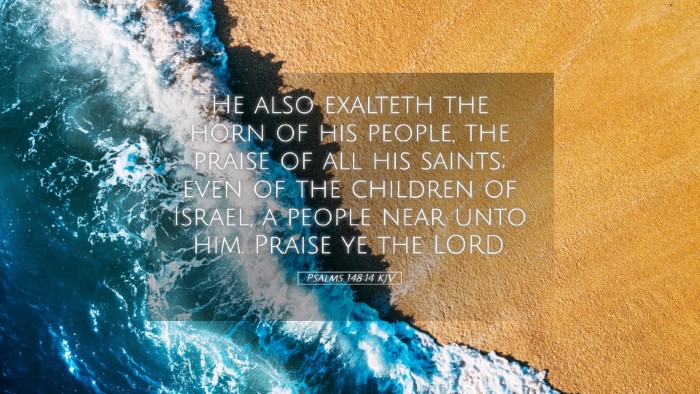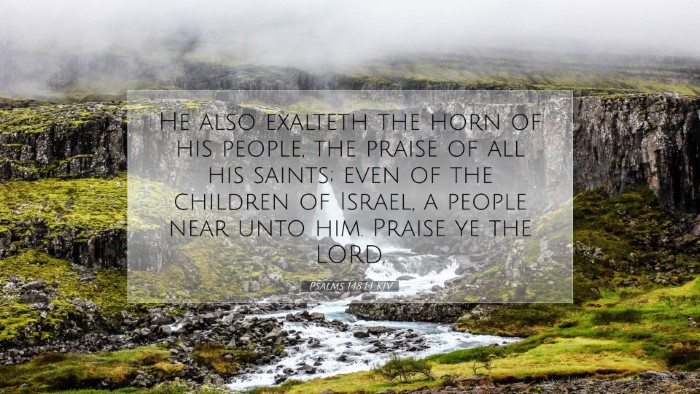Psalms 148:14 - A Commentary
Verse Text: "He also exalteth the horn of His people, the praise of all His saints; even of the children of Israel, a people near unto Him. Praise ye the LORD."
Introduction
This verse culminates the psalmist's call to all creation to praise the LORD, emphasizing the special relationship Jehovah has with His people. It reflects themes of divine exaltation, covenant faithfulness, and the ultimate purpose of creation.
Exegesis and Analysis
In this verse, the psalmist, traditionally attributed to the period of the return from exile, captures the essence of God's relationship with His chosen people. Each phrase carries rich theological implications.
The Horn of His People
The concept of "horn" here signifies strength and power. Biblical texts frequently use "horn" as a metaphor for strength (see 1 Samuel 2:10; Psalm 112:9). This suggests that God not only protects His people but also empowers them.
Praise of His Saints
This phrase highlights the special position of the Israelites as God’s chosen. Albert Barnes notes that "saints" here refers to those set apart by God for a holy purpose. It calls to mind the covenant relationship, wherein God elevates a people for His glory.
Children of Israel
The phrase “children of Israel” invokes the historical relationship God has had with the Israelites—marked by deliverance from Egypt and the giving of the Law. Matthew Henry articulates that this remembrance of Israel's unique status emphasizes God's faithful love and promise to His people.
A People Near Unto Him
God's proximity is not solely physical but relational. Adam Clarke discusses how this nearness implies a closeness in worship and yearning for divine interaction. It reflects the truth that in the covenant, God is not distant; He seeks communion and fellowship.
Praise ye the LORD
This concluding exhortation is a fitting end to the psalm, constituting an invitation for all creation to join in the chorus of worship. The term “LORD” (Yahweh) underscores the personal nature of God, who is intimately involved in His creation. It signifies not just a command but a joy-filled call to celebration.
Theological Implications
- Covenant Relationship: This verse encapsulates the essence of Israel's covenant with God and serves as a reminder for all believers about divine faithfulness.
- Divine Exaltation: The exalting of the horn illustrates God's sovereignty and the empowerment of His people which in turn challenges the believer to live a life of praise.
- Inclusivity in Praise: The call to praise transcends the nation of Israel, extending to all believers, revealing that God's glory is for all peoples and nations.
Practical Applications
For pastors, theologians, and students alike, this verse offers abundant material for reflection and preaching. It invites a deeper understanding of identity in Christ:
- Encouragement for Believers: Just as Israel was near to God, so are believers through Christ. This assurance fosters faith and boldness in evangelistic endeavors.
- Call to Worship: The psalm underscores the importance of corporate worship and individual praise, reminding congregations that worship is not a mere activity but a response to God’s character and actions.
- Strength in God: Believers can draw strength from the promise of God's power (the horn) in their own lives, understanding that they are empowered by the Holy Spirit.
Conclusion
Psalms 148:14 beautifully encapsulates the relationship between God and His people, urging a life that celebrates this connection. As believers engage with this verse, they are invited into a deeper understanding of God's holiness, His nearness, and their call to exalt His name through praise. The implications remain relevant across generations, urging all to recognize their identity and purpose in God's redemptive plan.


